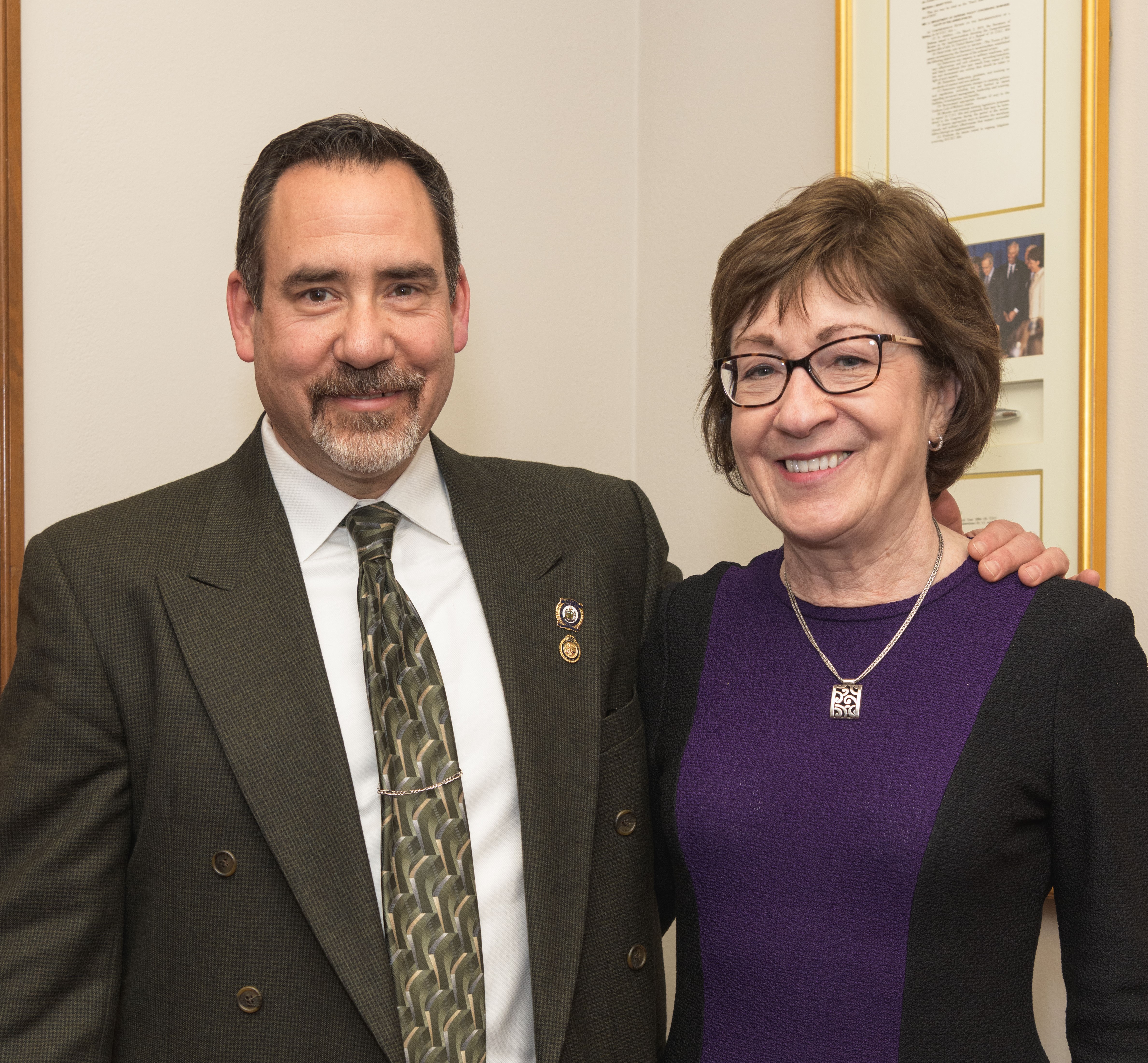Senator Collins Meets with Kennebunk Police Chief to Discuss Efforts to Combat the Opioid Crisis

Click HERE for a high-resolution photo
Washington, D.C. — U.S. Senator Susan Collins met with Kennebunk Police Chief Robert MacKenzie, a 30-year veteran of law enforcement, in her Washington, D.C., office. Chief MacKenzie was visiting our nation’s capital to attend the Rx Abuse Leadership Initiative (RALI) Capitol Hill Day.
“Chief MacKenzie has been a leader in fighting the opioid epidemic, working with trained individuals in York County to help Mainers who are struggling with substance use disorders,” said Senator Collins. “I look forward to our continued efforts together to keep our communities safe.”
Earlier this month, Senator Collins delivered remarks at the Maine Chiefs of Police Association Winter Conference in South Portland. During the conference, Chief MacKenzie received the Outstanding Contribution to Law Enforcement Award for his work in the field of substance use disorders.
Senator Collins has worked with Maine law enforcement officials on many issues over the years, including efforts to combat the opioid epidemic. This year, Senator Collins worked to secure $3.8 billion to combat the opioid crisis in the fiscal year 2020 funding package, building on the $8.5 billion appropriated in the two previous fiscal years. Last year, Senators Susan Collins (R-ME) and Maggie Hassan (D-NH) introduced the Opioid Workforce Act, a bipartisan bill that would create 1,000 new medical residency positions at teaching hospitals in Maine and across the country.
In 2016, Senator Collins championed passage of the 21st Century Cures Act, which created Opioid State Targeted Response Grants that are bringing vital resources for treatment and prevention activities to communities in Maine and across the nation.
In addition, Senator Collins co-sponsored the Comprehensive Addiction and Recovery Act (CARA), legislation that expands prevention, law enforcement, treatment, and recovery efforts nationwide. The bipartisan SUPPORT for Patients and Communities Act further strengthened the federal government’s response to this crisis and includes provisions Senator Collins authored that better ensure that unused prescription drugs do not fall into the wrong hands, bolster peer support networks for long-term recovery, and help stop synthetic drugs like fentanyl from being shipped through our postal system.